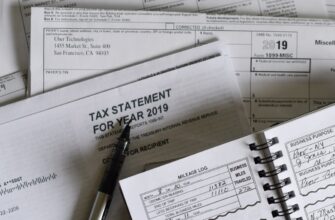- Introduction: Navigating DeFi Taxes in the UK
- Understanding DeFi Yield and Tax Obligations in the UK
- How HMRC Classifies DeFi Yield
- Step-by-Step Guide to Reporting DeFi Yield
- Common Mistakes to Avoid When Reporting
- Tools and Resources for Accurate Reporting
- Frequently Asked Questions (FAQ)
- 1. Is DeFi yield taxed differently from traditional interest?
- 2. What if I reinvest my yield immediately?
- 3. How do I report yield paid in obscure tokens?
- 4. Can losses from DeFi reduce my tax bill?
- 5. What penalties apply for late/mistaken reporting?
- Conclusion: Stay Proactive and Compliant
Introduction: Navigating DeFi Taxes in the UK
Decentralized Finance (DeFi) has revolutionized earning opportunities through yield farming, staking, and liquidity mining. But for UK investors, understanding how to report DeFi yield to HMRC is critical to avoid penalties. This guide breaks down the complex tax rules into actionable steps, helping you stay compliant while maximizing your crypto returns.
Understanding DeFi Yield and Tax Obligations in the UK
DeFi yield refers to rewards earned from participating in decentralized protocols—like interest from lending assets or liquidity pool tokens. In the UK, HMRC treats most DeFi yields as taxable income at the point of receipt. Unlike traditional savings, these earnings don’t qualify for tax-free allowances like the Personal Savings Allowance. Crucially, you must report them annually via Self Assessment, even if you reinvest the yield.
How HMRC Classifies DeFi Yield
HMRC’s crypto manual categorizes DeFi earnings based on activity:
- Lending Rewards: Interest from platforms like Aave or Compound is taxed as miscellaneous income.
- Liquidity Mining: Tokens received for providing liquidity (e.g., Uniswap pools) are income based on GBP value at receipt.
- Staking Rewards: Similar to mining—taxable as income when tokens are accessible.
- Airdrops & Forks: Only taxable if received in exchange for services or as part of business activity.
Note: Capital Gains Tax may apply later if you sell rewarded tokens at a profit.
Step-by-Step Guide to Reporting DeFi Yield
- Track All Transactions: Use tools like Koinly or CoinTracker to log every yield event with dates, token amounts, and GBP values at receipt.
- Calculate Income Value: Convert rewards to GBP using exchange rates at the moment they became accessible (not when claimed).
- Complete Self Assessment: Report totals under “Other Income” in the SA100 form’s Box 17. Business income goes in Box 20.
- Record Cost Basis: Note GBP value of tokens at receipt for future Capital Gains calculations upon disposal.
- File by Deadline: Submit online by January 31st following the tax year (April 6–April 5).
Common Mistakes to Avoid When Reporting
- ❌ Ignoring Small Rewards: All yield—even fractional amounts—must be reported.
- ❌ Using Incorrect Timestamps: Tax point is when you gain control of rewards, not when you sell them.
- ❌ Overlooking Gas Fees: Deduct transaction costs from income where applicable.
- ❌ Mixing Personal/Business: Business activities (e.g., frequent trading) require separate reporting.
Tools and Resources for Accurate Reporting
- 🛠️ Tax Software: Koinly, Accointing, or Recap automate GBP conversions and HMRC-compliant reports.
- 📚 HMRC Manuals: Review Cryptoassets Manual (CryptoManual) for official guidance.
- 💼 Professional Help: Consult crypto-specialized accountants for complex portfolios.
- 📅 HMRC’s Real-Time Calculations: Use their Currency Converter Tool for historical exchange rates.
Frequently Asked Questions (FAQ)
1. Is DeFi yield taxed differently from traditional interest?
Yes. Unlike bank interest, DeFi rewards don’t qualify for the £1,000 Personal Savings Allowance and are always subject to Income Tax.
2. What if I reinvest my yield immediately?
Reinvestment doesn’t defer tax. You owe Income Tax on the value at receipt, plus potential CGT when selling the new assets.
3. How do I report yield paid in obscure tokens?
Use reputable exchanges (e.g., CoinGecko) to find GBP values at receipt date. Document your methodology in case of HMRC queries.
4. Can losses from DeFi reduce my tax bill?
Income losses can offset other miscellaneous income but not salary. Capital losses from selling tokens can offset gains.
5. What penalties apply for late/mistaken reporting?
Fines start at £100 for missed deadlines and escalate. Inaccuracies may incur penalties up to 100% of owed tax if deemed deliberate.
Conclusion: Stay Proactive and Compliant
Reporting DeFi yield in the UK demands meticulous record-keeping and understanding of HMRC’s evolving crypto rules. By categorizing earnings correctly, leveraging tools, and filing accurately, you mitigate audit risks while legally optimizing returns. Always consult a tax professional for personalized advice as regulations adapt.








